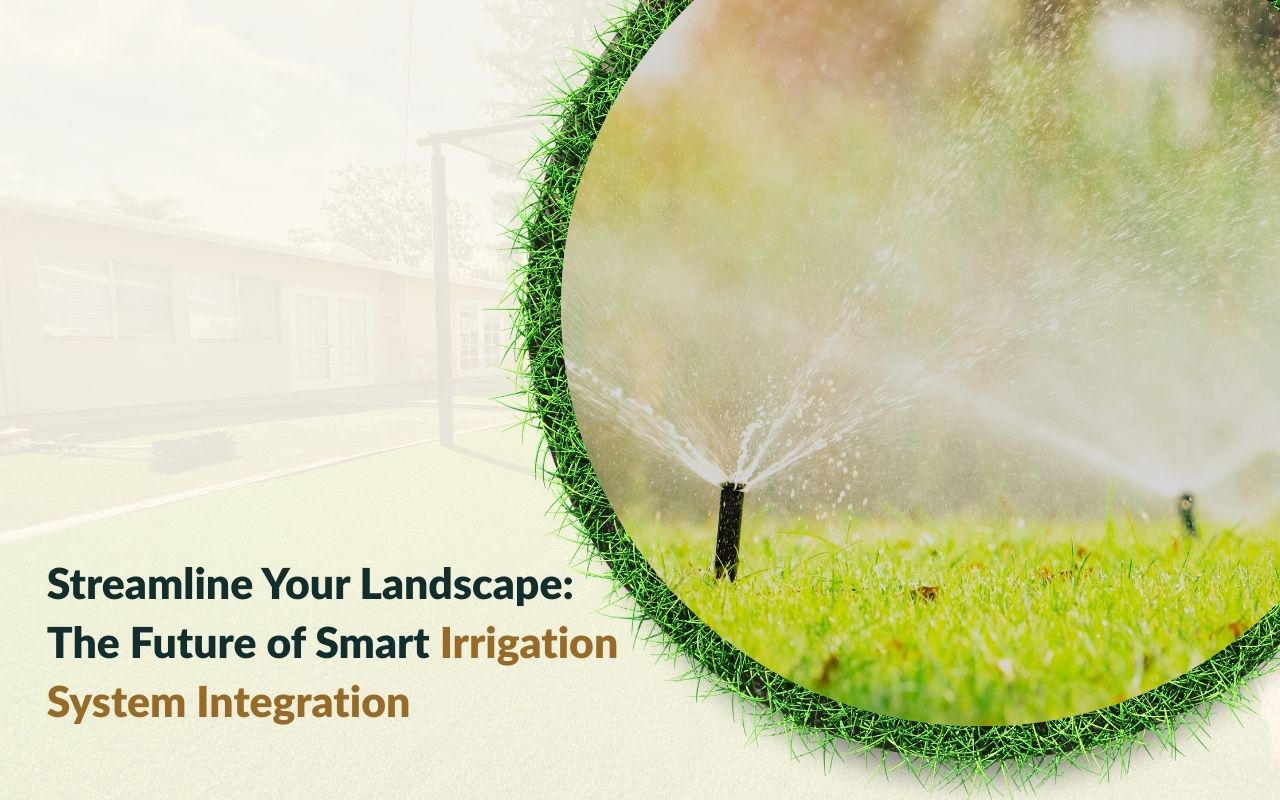
Maintaining your landscape can become costly, with water bills rising and endless hours spent adjusting sprinklers manually. Smart irrigation system integration reshapes outdoor care.
Imagine your garden thriving with minimal effort thanks to technology that adapts to your landscape’s unique needs. This vision is already reality for many homeowners.
Environmental concerns and water conservation are increasingly important. Innovative solutions like smart irrigation systems are no longer luxuries—they are necessities for sustainable landscaping.
Traditional irrigation methods waste up to 50% of water. Smart systems optimize plant health and reduce maintenance costs. Explore how smart irrigation system integration makes a difference.
Understanding Smart Irrigation Systems
Smart irrigation systems use sensors to monitor soil moisture, temperature, and sunlight exposure. These devices determine when and how much to water your landscape.
Intelligent controllers and connectivity modules eliminate guesswork. Unlike traditional timers, smart irrigation system integration allows real-time data control for optimal watering schedules.
Systems often connect to cloud platforms or smartphone apps, providing remote visibility. Leveraging forecasts and moisture readings ensures each zone receives the perfect hydration.
Benefits of Smart Irrigation Integration
Water Savings
Adjusting watering schedules using smart data reduces unnecessary water use by 30–50%. This conserves resources and lowers utility bills.
Time Efficiency
Automation saves users valuable time. Personalized schedules and alerts minimize manual adjustments, allowing homeowners to focus on enjoying their landscapes.
Cost-Effective Investment
Lower water bills, reduced maintenance, and prevention of plant damage make smart irrigation integration a wise long-term investment.
Environmental Sustainability
Smart systems reduce runoff and promote healthy plant growth. They demonstrate environmental responsibility and can improve property value.
Enhanced Property Value
Properties with smart irrigation systems attract eco-conscious buyers. Modern landscaping, lower water consumption, and well-maintained gardens increase market appeal.
Components of a Smart Irrigation System
Systems include weather sensors, soil moisture sensors, controllers, and precise water distribution mechanisms. Each component contributes to efficiency.
Weather sensors monitor conditions and adjust schedules. Soil moisture sensors determine exact moisture needs. Controllers manage schedules based on plant and weather data. Drip irrigation or precision nozzles maximize water absorption.
How Smart Irrigation Systems Work
Sensors collect data on soil, weather, and temperature. Controllers analyze this against thresholds and forecasts, determining irrigation timing. This prevents overwatering and runoff.
Daily or hourly schedule adjustments support healthy roots. Smart irrigation system integration ensures precise, adaptive watering for optimal plant growth.
Choosing the Right Smart Irrigation System for Your Landscape
Assess landscape size, plant diversity, and infrastructure. Wi-Fi or cellular connectivity options affect system selection. Compatibility with smart home hubs ensures seamless integration.
Read reviews and consult professionals to maximize ROI. Smart irrigation system integration reduces effort and supports long-term landscape health.
Installation and Setup Process
Plan zones, mount sensors, wire valves, and configure controllers. Proper placement ensures accurate readings and effective watering.
Label valves, connect controllers, calibrate sensors, and input plant profiles. Conduct a test run to verify operation and performance.
Setting Up Automated Schedules
Use time-based, sensor-triggered, or hybrid schedules. Fine-tune run times and use rain delay features for efficient watering. Monitor soil moisture regularly.
Monitoring and Adjusting Irrigation Remotely
Smart apps provide live sensor data and alerts. Adjust schedules remotely during heatwaves or rainfall. Historical graphs help identify inefficiencies.
Maximizing Water Efficiency and Conservation
Use evapotranspiration data, rain sensors, zone customization, mulches, and drought-tolerant ground covers. Audit systems regularly to maintain accuracy and reduce waste.
FAQs
What is smart irrigation system integration?
It is the use of sensors, controllers, and connectivity to automate and optimize watering schedules.
How does it save water?
Smart systems use real-time data to water only when needed, reducing overwatering and runoff.
Can it be monitored remotely?
Yes, most systems provide smartphone apps or cloud dashboards for live data and control from anywhere.
Is it suitable for all landscapes?
Yes, systems are scalable for lawns, gardens, and commercial properties, adapting to plant and soil needs.
Ready to upgrade your irrigation system? Explore our services for professional smart system integration. For personalized advice, contact us today.
Embracing the Future of Smart Irrigation Systems
AI, IoT, and IoT-enabled devices will enhance system capabilities. Predictive analytics and advanced sensors make smart irrigation system integration more efficient and accessible. Future innovations will simplify management and improve sustainability.
